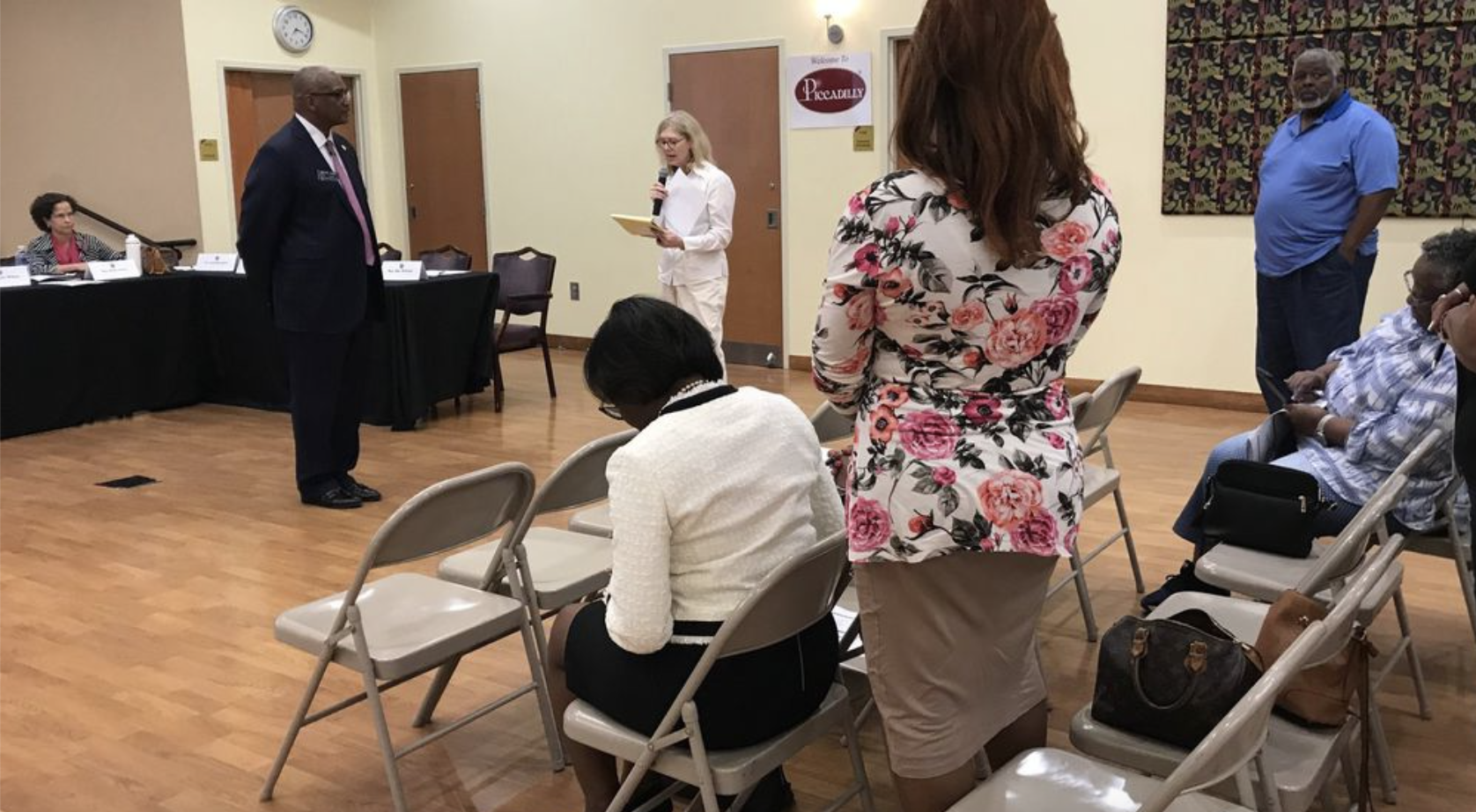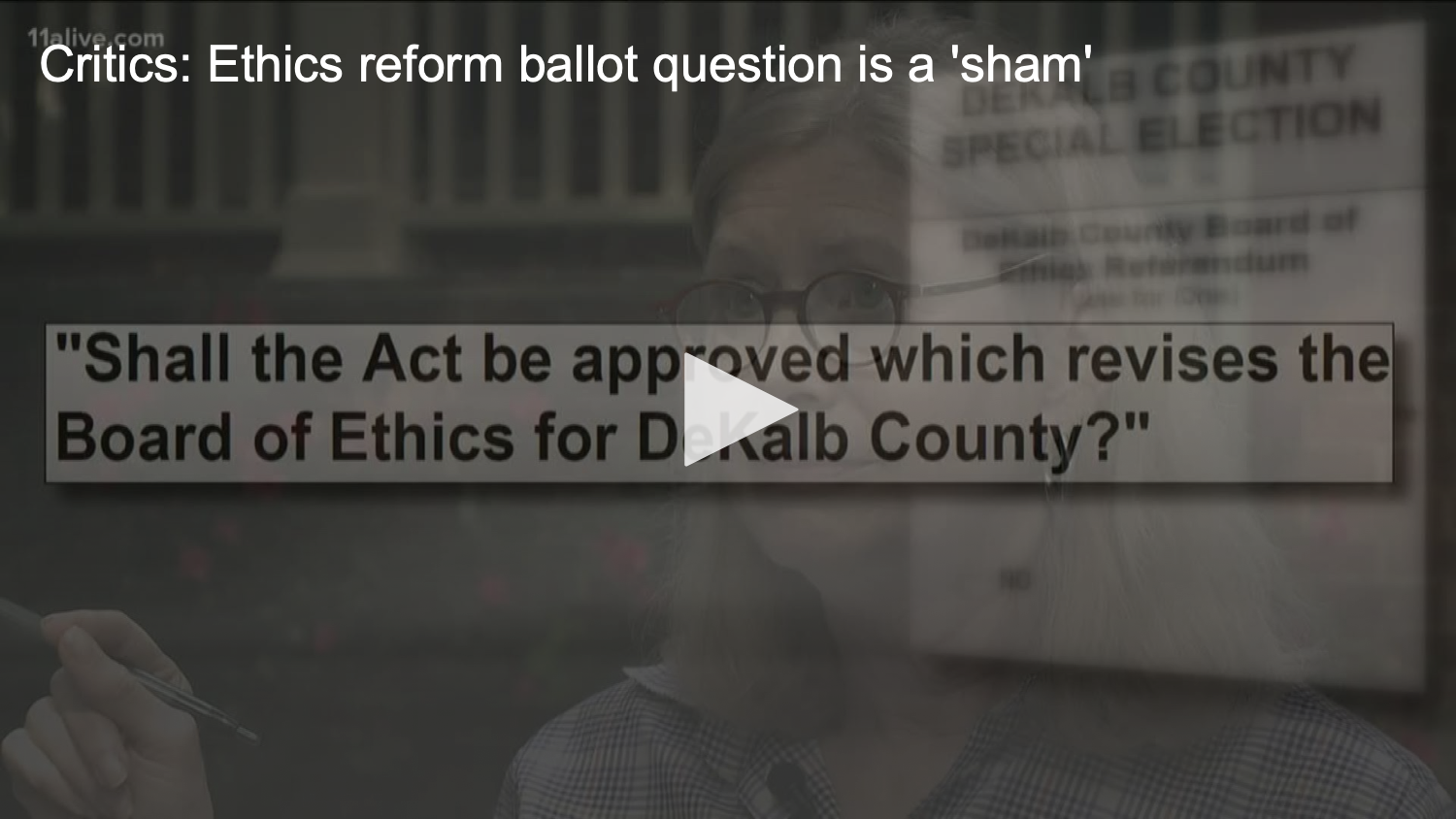
For Immediate Release
Community Leaders Lining Up Against the Fatally Flawed Ethics Act on DeKalb County’s Ballot for November 5, 2019
[DeKalb County, GA]—DeKalb County community leaders are lining up against the Revised Ethics Act that will be on DeKalb County’s ballot on November 5, 2019.
Dr. Paul Wolpe, Director of the Emory Center for Ethics, an internationally renowned ethics expert and a DeKalb County citizen, has reviewed the proposed legislation. “The bottom line is that this bill is clearly meant to weaken and dilute the excellent policy passed in 2015, without any convincing reasons to weaken the bill,” Dr. Wolpe concluded.
Leading members of the first Blueprint to Redefine DeKalb, including Ted Daniel, Brenda Pace, Robert Glover, Judge Patricia Killingsworth, and Dan Wright, have joined PRISM (Pride Rings In Stone Mountain), DeKalb Strong, and Concerned Citizens for Effective Government in taking issue with the proposed ethics board changes.
“Requiring employees to go through Human Resources first will no doubt have a chilling effect on county employees reporting wrong-doing when they see it,” stated Judge Killingsworth, who is also a prior chair of the Board of Ethics, and who strongly disagrees with the proposed amendment. “By discouraging and indefinitely delaying the right of an employee to file a complaint with the ethics board, this bill could very well result in unethical acts going unpunished.”
Further, a 2017 study of DeKalb’s Culture by the University of North Georgia’s BB&T Center for Ethical Leadership stated that “Due to below average scores on indicators such as leadership confidence, perceptions of the county’s leadership ability to articulate a clear future and vision, employees understanding of the county’s values, and overall communication we recommend remediation for the county government and its employees.”
“Voters need to send a clear “no” to the county and legislature regarding this flawed revised ethics act,” stated Mary Hinkel, chair of the DeKalb Citizens Advocacy Council. “The only thing the Supreme Court struck down was the appointment of four of the seven members of the board who were selected by community groups. The simple fix of those four appointments can be made, and the board can be up and running by the end of March.”
###
For more information, visit www.dekalbcitizens.org/about-us.
The DeKalb Citizens Advocacy Council (DeKalb Citizens) is registered as a nonprofit corporation in the state of Georgia and will be filing shortly an application for recognition of exemption under IRS Section 501(c)4. DeKalb Citizens Advocacy Council is a group of community members from throughout DeKalb County, Georgia, that has formed a ballot committee to defeat the revised ethics act, which is on the ballot for the November 5, 2019 general election. DeKalb Citizens’ mission is to educate the citizens of DeKalb County about county governance issues and to advocate for informed citizen engagement. The organization’s members research topics, including filing open records requests and seeking out best practices from other jurisdictions. The goal is for DeKalb County to model excellence in citizen engagement and county responsiveness to citizen concerns.
www.dekalbcitizens.org
Media Contact:
Mary Hinkel Martha Pacini
maryhinkel@comcast.net marthapacini@gmail.com
(404) 312-8646 (404) 285-7042





